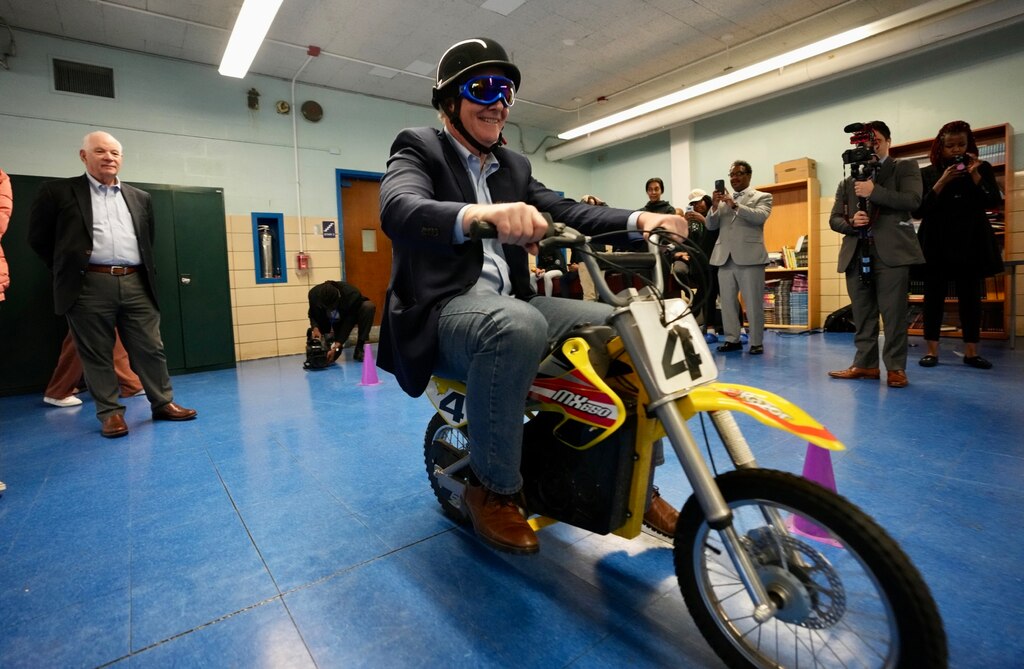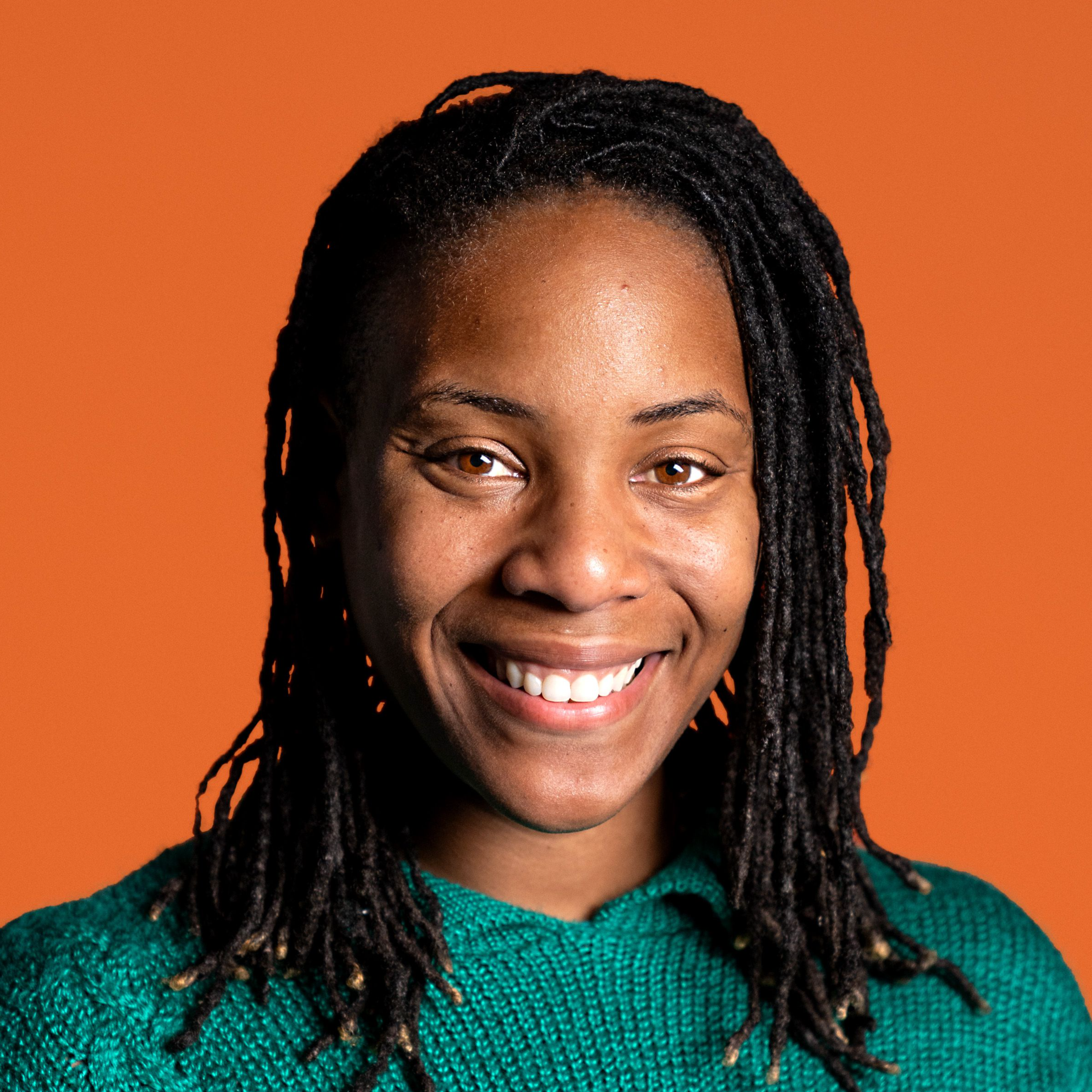Brittany Young longs to walk through a brand new dirt bike campus with the young kids and adults that participate in her nonprofit, B-360.
Since 2017, Young has advocated to have such a campus built in Baltimore so that people have a place to ride other than city streets, where it’s illegal.
Young and her nonprofit are now closer to that goal after an announcement Friday that they’d receive $3 million in federal investments to build a dirt bike campus — hopefully in Baltimore City — and expand career training and other programs, including one for STEM.
“For me, it gives me hope, but this won’t be the end for us,” Young said, whose nonprofit combines dirt bikes with STEM learning.
Young joined Sens. Ben Cardin and Chris Van Hollen and other local leaders Friday at the Restoring Inner City Hope center in Cherry Hill to announce the news.
Van Hollen said the money for the campus will help kids who love riding dirt bikes learn about how they work. He wished when he had a motorcycle, he had learned more about its mechanics. He relived his riding days at the press conference, grabbing a helmet and goggles and hopping on a yellow and white electric dirt bike that he rode around on the blue tile floors.

B-360 kicked off a $10 million capital campaign last year to build a dirt bike campus. Young, who has a background in STEM and education, said $1 million of the federal funds will go toward operations and programming and the rest to the campaign. Though she’s happy about the federal funds, Young said, they still have a long way to go.
She fondly remembers watching dirt bike riders in Druid Hill Park on Sundays when she was a kid. And although she never got into riding them herself, she sees an untapped opportunity for nurturing that community.
B-360 uses dirt bike culture to end the cycle of poverty, disrupt the prison pipeline and connect communities. Through at least four different programs, the nonprofit aims to change the negative perceptions about dirt bike riders. In addition to STEM, programs focus on advocacy, workforce development, and helping those who were in the criminal justice system.
Since it was founded in 2017, the group has worked with over 7,000 young people and saved taxpayers $1.2 million by employing those at risk of incarceration, according to B-360 data. In the same time frame, dirt bike arrests in Baltimore have decreased by 81%, per the group’s data.
While some consider riding dirt bikes a passion and a hobby, others label it a safety concern and a problem. Young said that “in order to solve common problems, that means having a dedicated space.” She’d like a space with indoor and outdoor tracks, classrooms, a place for a 3-D printer, storage for equipment and a kitchen.
The nonprofit has never had a permanent space, but has held riding and other events at places such as the B&O Railroad Museum, Young said. They were opportunities that proved a dedicated space for dirt bikes could exist, she said.
Young also advocates for safe riding.
“Black people just want to have fun too. The kids and young adults we work with want to have fun every day and they deserve an opportunity to have fun, to be safe and to exist,” Young said.
Tristan Tremble’s life changed two years ago when Young saw something in him and gave him a chance to be a part of the B-360 circle. He wants people to understand that they’re a family without a home or a safe place to ride, and it’s his dream for them to one day have one.
“I have a voice, but I need y’all to hear me,” he said.

The federal investment is a rare time government didn’t tell young people what they need, but gave them what they need, said Dana Moore, chief equity officer for the city.
“When you invest in somebody’s passion and show that a passion can lead to purpose, it’s huge. It’s life altering,” she said.
People have zoomed around Baltimore on dirt bikes for decades, but they’re illegal to ride on city streets. The city defines them as any motorcycle or similar vehicle designed for “rough surfaces” and not registered under the Maryland Vehicle Law. Fines for riding illegal dirt bikes are up to $1,000 or 90 days in jail, punishments Young thinks are unfair.
“I have no issue with police, but I have an issue with policy that allows people to enforce policies that directly impact Black people,” she said about the policing of dirt bike riding.
The Baltimore City Police Department formed a Dirt Bike Task Force in 2016, but disbanded four years later because of budget cuts and staffing reallocation, said Lindsey Eldridge, the police department’s director of public affairs and community outreach.
Young wants to change the narrative about dirt bikes and hopes the federal investment gives inspiration to other Black-led, grassroots organizations. Eventually, she’d like to see B-360 in other states as well.





Comments
Welcome to The Banner's subscriber-only commenting community. Please review our community guidelines.